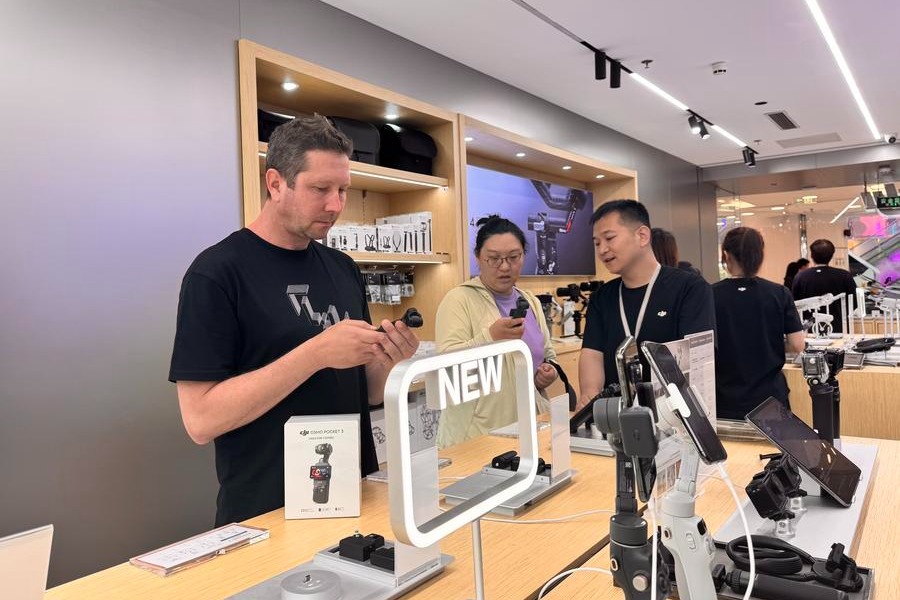Calling kale beverages 'slim' raises eyebrows

As scorching summer heat drives beverage sales across China, some tea drink chains are drawing scrutiny for the way they market their latest fruit and vegetable drinks featuring kale.
Several popular brands have rolled out beverages with names using terms such as "slim", "slimming" and "slim body", which could easily lead consumers to believe the drinks have weight-loss functions. But the fine print on the labels tells a different story.
Naisnow, a well-known Chinese beverage chain, recently launched a drink called Slim Little Green Bottle, made with kale, apple and orange juice. The product prominently features the words "slim" and "light" on its packaging. However, the third note in the product details clarifies that these terms refer only to the bottle's slender and lightweight design — not to any slimming benefits.
Kale is often associated with fitness and weight management due to its low-calorie, high-nutrient profile and ability to promote satiety. This has added to consumer assumptions that kale-based drinks might aid in weight loss.
Heytea, another leading Chinese beverage brand, offers a kale drink as part of its Fire-Reducing and Slimming Bottle series. In traditional Chinese medicine, the term "fire-reducing" refers to restoring internal balance by eliminating excess heat, which is believed to cause ailments such as sore throats or acne.
However, the official product description notes in small print that the term refers only to the drink's cooling and refreshing taste, which "may help alleviate the feeling of heat in daily life". The product makes no explicit claims about aiding weight loss.
Li Mofan, a lawyer with Hesen Law Firm in Hefei, Anhui province, said these marketing tactics are likely to mislead consumers.
"Consumers may mistakenly believe the drinks have slimming effects, especially if they do not notice the fine print," she said. "The naming and marketing strategies of Naisnow and Heytea carry significant legal risks and potentially infringe on consumer rights."
China's Advertisement Law states that advertising must not contain false or misleading content and should not deceive or mislead consumers. Advertisers are responsible for the truthfulness of their ads, Li noted.
"The use of terms like 'slim' and 'slimming' implies strong functionality," she said. "Such word choices exploit the public's common understanding and lead consumers to believe the products may deliver weight-loss or body-shaping results."
Even though the companies provide clarifications, these are often placed in obscure locations or printed in small font sizes, creating what Li calls a "cognitive dissonance" between the product name and its actual attributes.
"This may amount to wordplay designed to evade responsibility," she added.
Li advised consumers to be cautious when encountering suggestive health or functional terms and to pay close attention to product ingredient lists and disclaimers. She also called on beverage brands to avoid using terms that easily trigger assumptions about health benefits unless those effects are scientifically supported and clearly stated.
- New plan to boost fight against hepatitis
- Ancient find reveals secrets of lamp fuels
- China sees return travel rush as National Day holiday comes to end
- China to see rainfall, temperature drop
- Ancient grottoes in Southwest China survive, thrive via innovative measures
- Macao sees tourism boom during National Day, Mid-Autumn Festival holidays





































